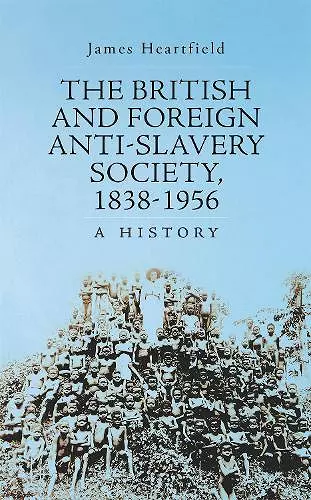The British and Foreign Anti-Slavery Society 1838-1956
A History
Format:Hardback
Publisher:C Hurst & Co Publishers Ltd
Published:17th Nov '16
Should be back in stock very soon

After West Indian slavery was abolished in 1833, the campaign turned to the wider world and the goal of Universal Emancipation. Veteran agitators Joseph Sturge, Lord Brougham and John Scoble launched the British and Foreign Anti-Slavery Society at a world convention in 1840.Throughout its long history the British and Foreign Anti-Slavery Society was instrumental in framing Britain's diplomatic policy of promoting anti-slavery -- a policy that projected moral authority over allies and rivals, through naval power and international tribunals.The BFASS pushed for, and prepared the 1890 Brussels conference that divided Africa between the European powers, on the grounds of fighting Arab slavers. The Society was torn between its belief in the civilising mission of Europeans, and its brief to protect Africans. Rubber slavery in the Belgian Congo, indentured 'coolies' in the Empire, and forced labour in British Africa tested the Society's goals of civilising the world.This first comprehensive history of the Society draws on 120 years of anti-slavery publications, like the Anti-Slavery Reporter, to explain its unique status as the first international human rights organisation; and explains the Society's surprising attitudes to the Confederate secession, the 'Coolies', and the colonisation of Africa.
A very readable book by an accomplished author who handles narrative, argument and analysis with admirable clarity. The work of the Society and the zeitgeist which powered it is a remarkable story and Heartfield’s is a significant contribution to our understanding of an important strand of British social and intellectual history. * Richard Rathbone, emeritus professor and professorial research associate at SOAS, London; co-author of African History: A Very Short Introduction *
The most comprehensive history yet of an organisation that laid foundations for Britain’s philanthropic interventions overseas. Heartfield enables us to see how antislavery activists saw themselves reforming the world, while also hinting at their often unintended effects. This is a vital resource for anyone grappling with the complicated legacies of Britain’s Empire. * Alan Lester, Professor of Historical Geography, University of Sussex *
This is an excellent book which narrates for the first time, and in fine-grain detail, the works, ideals, tensions and shifts of the Anti-Slavery Society – as the author rightly suggests, the first and longest standing “civil society organisation”. Enthusiastically recommended. * Robbie Shilliam, Reader in International Relations, Queen Mary University of London; author of The Black Pacific: Anticolonial Struggles and Oceanic Connections *
Heartfield’s important and meticulously-documented account shows clearly how the intertwining of ideals and interests in the original abolitionist movement produced the convergence of liberal anti-slavery and British imperialism in the following century. * Nicholas Draper, University College London, author of Legacies of British Slave-ownership: Colonial Slavery and the Formation of Victorian Britain *
A landmark study . . . that is impressive in its scale and ambition. His detailed analysis . . . is a model of clarity . . . impressive in its grasp of detail. Heartfield's thoughtful and illuminating study will be of obvious interest to students and scholars alike. Readable and accessible, The British and Foreign Anti-Slavery Society, 1838-1956 is an important book that is likely to become the standard history of what is rightly regarded as the first international human rights organization in the world. -- Professor Oldfield
ISBN: 9781849046336
Dimensions: unknown
Weight: unknown
500 pages